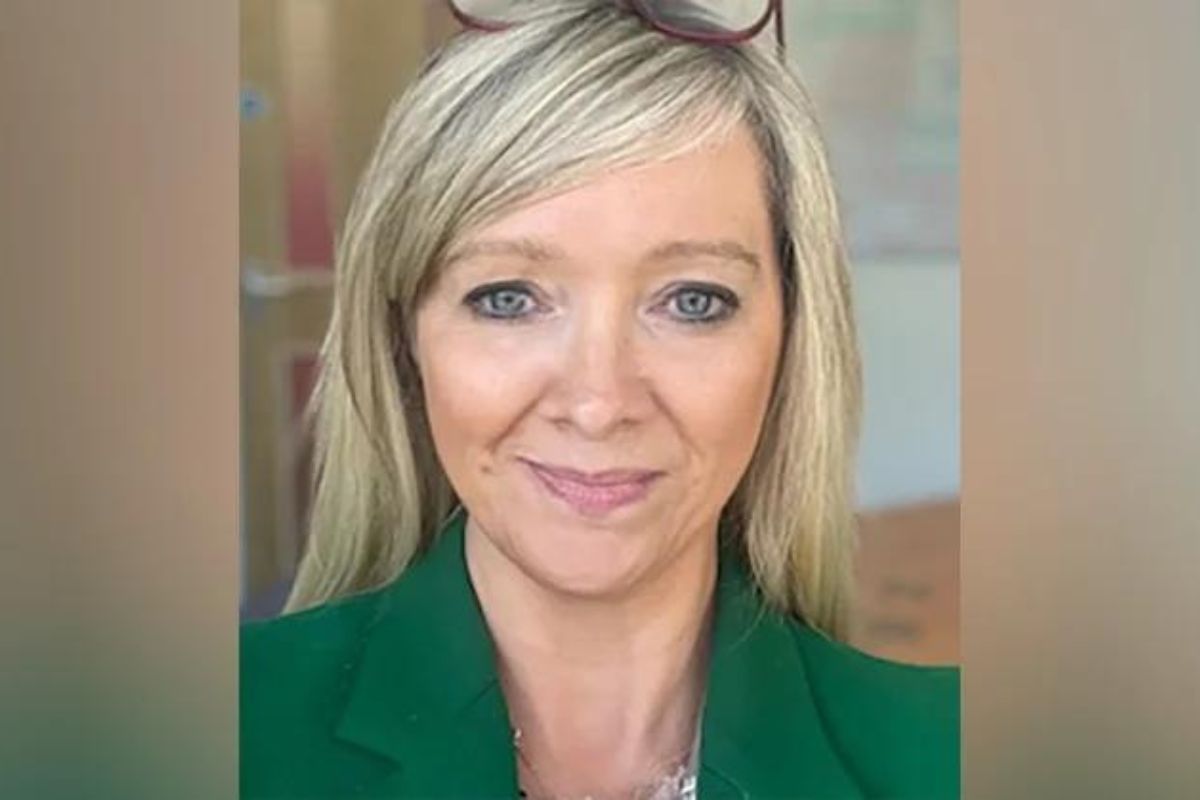Prime Minister’s Ambitious Plan of Maths to 18: Sector Reaction

In his first speech of 2023, the Prime Minister set out his five priorities for the year ahead and ambition for a better future for Britain.
The PM will commit to taking the necessary action to deliver for the long term on issues such as low numeracy rates. As part of this, he will set a new ambition of ensuring that all school pupils in England study some form of maths to the age of 18.
The Prime Minister is expected to say in a speech today [Wednesday 4 January]:
“This is personal for me. Every opportunity I’ve had in life began with the education I was so fortunate to receive. And it’s the single most important reason why I came into politics: to give every child the highest possible standard of education.
“Thanks to the reforms we’ve introduced since 2010, and the hard work of so many excellent teachers, we’ve made incredible progress. With the right plan – the right commitment to excellence – I see no reason why we cannot rival the best education systems in the world”.
Recognising the practical challenges involved, the PM will acknowledge that reform on this scale won’t be easy. He will commit to starting the work of introducing maths to 18 in this Parliament and finishing it in the next.
Around 8 million adults in England have the numeracy skills of primary school children. Currently only around half of 16-19 year olds study any maths at all and the problem is particularly acute for disadvantaged pupils, 60% of whom do not have basic maths skills at age 16.
Despite these poor standards, the UK remains one of the only countries in the world to not to require children to study some form of maths up to the age of 18. This includes the majority of OECD countries, including Australia, Canada, France, Germany, Finland, Japan, Norway and the USA.
Just half of all 16–19-year-olds study any maths at all
The Prime Minister will commit to take action to reverse these trends by introducing maths to 18 for all pupils in England. He will say:
“One of the biggest changes in mindset we need in education today is to reimagine our approach to numeracy. Right now, just half of all 16–19-year-olds study any maths at all. Yet in a world where data is everywhere and statistics underpin every job, our children’s jobs will require more analytical skills than ever before.
“And letting our children out into the world without those skills, is letting our children down”.
Maths to 18 will equip young people with the quantitative and statistical skills that they will need for the jobs of today and the future. This includes having the right skills to feel confident with finances in later life, including finding the best mortgage deal or savings rate.
The government’s focus on literacy since 2010, including phonics, has led to significant improvements in standards. In 2012, only 58% of 6-year-olds were able to read words fluently. By 2019, the figure had risen to 82%. Our renewed focus on numeracy will aim to match this achievement.
The government does not envisage making maths A-Level compulsory for all 16-year-olds. Further detail will be set out in due course but the government is exploring existing routes, such as the Core Maths qualifications and T-Levels, as well as more innovative options.
The ambition is the PM’s first major intervention on education since entering office and reflects his mission to ensure that more children leave school with the right skills in numeracy and literacy.
At the Autumn Statement, the government announced that it will invest an additional £2bn in schools next year and £2bn the year after, taking school funding to its highest ever level.
Sector reaction
Catherine Sezen, AoC Education Director said:
“To achieve the Prime Minister’s ambition for all young people to continue studying maths post-16 the sums must add up, with appropriate qualifications for students working at different levels, adequate staffing levels, and sustainable funding for colleges and sixth forms.
“To truly have an impact, this strategy must focus on the entire cohort of 16 to 18-year-olds, not just the roughly 275,000 who take A Levels. More than 300,000 of the 18-year-olds who remain in education are on other pathways – including BTECs and T Levels – while around 15% are in work, some are on apprenticeships and some not in education, employment or training at all. Numeracy skills are needed throughout life and adult learners should also be included in the drive to boost the nation’s mathematical ability.
“A thorough review and restructuring of maths from age 14, at least, is required given the unhelpful cliff-edge nature of GCSE maths and the negative barrier this creates for a third of young people at age 16 who are forced to resit their exams. The 2017 DfE-commissioned Smith report exploring post-16 maths said the GCSE resit policy, a 16-18 condition of funding, was an obstacle to maths for all because the curriculum was wrong. The department dismissed this at the time, but the point remains.
“Poor 16-18 funding is a big obstacle to recruiting and retaining staff to teach maths for all. Maths teacher recruitment incentives are paid to schools but not colleges and funding per student drops 20% at age 16 for no good reason – this requires urgent attention.
“It is right that the PM is taking an interest in education for 16 to 18-year-olds but speeches are the easy part. Progress needs an implementation plan based on evidence, backed by appropriate funding and not ignoring huge swathes of young people.”
Sharon Davies, CEO of leading education charity Young Enterprise said:
“Introducing compulsory maths to 18 would be a really positive step.
“Far too many young people in the UK currently leave education without the necessary skills in maths and that leads to an attainment gap and unrealised potential. In many countries, including France, Germany, America and Japan, it is already compulsory to study maths until 18.
“In today’s data driven society, having a great knowledge of maths can only set young people up for a better future.
“However, compulsory maths to 18 should consist of practical maths, including personal finance skills such as budgeting, saving and digital literacy, especially as many jobs are now underpinned by technology, statistics, and data.”
Liberal Democrat Education Spokesperson Munira Wilson said:
“This is an admission of failure from the Prime Minister on behalf of a Conservative Government that has neglected our children’s education so badly. Too many children are being left behind when it comes to maths, and that happens well before they reach 16.
“The Prime Minister’s words mean nothing without the extra funding and staff to make it happen. You don’t need a maths A-Level to know it takes more teachers to teach maths to age 18 than to 16. But schools are already struggling with a shortage of maths teachers, and the Conservatives have no plan to turn that around.
“If Rishi Sunak is serious about reversing the Conservatives’ awful record on numeracy, he should start by cancelling the planned cuts to early years education and come forward with a real plan to recruit and retain the teachers we need.”
Geoff Barton, General Secretary of the Association of School and College Leaders, said:
“We’ve heard from the Prime Minister more warm words about the importance of education as the best economic, social and moral policy for the country, and this is a sentiment with which we obviously agree.
“But the only tangible measure he has announced is a vague idea of extending maths teaching up to the age of 18 for every student without the slightest evidence of what this would achieve or an acknowledgement that we already have a severe shortage of maths teachers and the plan is therefore currently unachievable.
“The education system doesn’t need more policy gimmicks or random targets, but serious and sustained investment in schools and colleges after a decade of chronic underfunding, and a strategy to address teacher shortages which are at crisis point.
“We welcome the improvement in school funding announced in the Autumn Statement as a step in the right direction, but this comes in the context of budgets which have taken an absolute hammering for many years, and does not address post-16 education which has suffered appalling underfunding for the past decade or so.
“We also have an inspection system which stigmatises schools, an exam system which is stuck in the 1950s, and a curriculum which needs to be refreshed and modernised.
“There is plenty for the government to do if it is serious about education being the silver bullet. But it needs to deliver more than rhetoric and half-baked plans about extending maths to 18.”
Courtney, Joint General Secretary of the National Education Union, said:
“The Prime Minister’s statement is baffling in its failure to notice the obstacles to his ambitions to extend maths education: schools and colleges lack the teachers to deliver it. His government’s policies for teacher recruitment are not bringing new teachers in sufficient numbers and have missed their target in every one of the last twelve years. The Government have also cut their recruitment target for maths teachers by 39% since 2020. Low pay and the pressures of workload are creating a crisis of teacher retention as well. None of the government’s frequent announcements about curriculum change will be credible unless it addresses these basic problems.
“Sunak’s plan is disappointing not only in its lack of realism but its lack of vision. It overlooks the increasingly detailed and urgent discussions about curriculum reform that have been taking place across the education sector and even within his own party. There is a widespread consensus in favour of change, in the form of an integrated qualifications system that offers every student opportunities to include ‘academic’ and ‘vocational’ elements alongside accreditation for skill development, and inter-disciplinary study. There is certainly a place for maths education in proposals like these. But as a single ‘bright idea’, it is not an answer to the problems of a curriculum which is failing to prepare students for a world of change.”
Lee Elliot Major, Professor of Social Mobility at the University of Exeter, said:
“The national priority should be addressing the scandalous failure of so many pupils leaving school lacking basic maths. Our research shows that every year hundreds of thousands of pupils fall short of basic standards in maths and English language at age 16. In practical terms this means many teenagers leave school unable to digest a train timetable or compare the cost of products and services. Many of these children were judged to not to have made expected progress in basic numbers at age three and five.
“All pupils should be expected to pass a school-leaving certificate that would assess functional skills needed to get on in everyday life.”
Louise Hill, Co-Founder and COO of GoHenry said:
“It’s great to see maths being pushed as a priority on school curriculums until the age of 18. Numeracy skills are vital both in the workplace and everyday life, but we would like to see the Government prioritising giving school children the practical skills they need to navigate real-world finance successfully.
“That means thinking outside the box and prioritising financial education on primary and secondary school curriculums as a standalone subject. The evidence is clear that this will help individuals be more financially savvy, boost entrepreneurship, and provide a significant long-term economic boost to the whole country. If the Prime Minister is serious about reimagining our approach to numeracy, this is the change that will make the most tangible difference.”
Manny Gill, UK Business Lead at Project Management Institute:
“While it is encouraging to hear the government’s commitment to expanding the school curriculum, we do not believe extending maths studies alone will enough to suitably prepare students for the world of work.
“As it stands, it is no secret that millions of young people are entering the job market without the necessary skills to hit the ground running and contribute sufficiently to their employers. While maths is a good foundational skillset, it is critical to also equip young people with professional skills that UK businesses are currently crying out for in the midst of talent shortages.
“For example, across the project management sector, we are witnessing a significant skills shortage that threatens global progress if not addressed urgently. The global project economy requires 25 million new project professionals by 2030 to fulfil the demand of a £16.5 trillion industry – a goal that the UK will not sufficiently contribute to if project skills continue to be neglected across our education system.
“The skills in questions – that we label ‘power skills’ – include communication, collaborative leadership, problem-solving, relationship building, and strategic thinking. When applied correctly they can make a difference: 7 in 10 businesses that prioritise power skills alongside technical skills in their workforce experienced consistent project success in the past year, according to our Pulse of the Profession 2023 study.
“We hope the today’s announcement is the first stage of a wider strategy to reform the British curriculum and a renewed commitment to brighten the career prospects of our young people.”
Sharon Hague, Managing Director, Pearson School Qualification said:
“Pearson welcomes the Prime Minister’s ambition of ensuring all school pupils in England study maths in some form to the age of 18.
“As the UK’s largest awarding organisation for maths qualificationsacross General Qualifications, Applied Generals and Functional Skills, we fully understand and echo the importance of providing all young people with the maths and numeracy skills that match their career ambitions and employers’ expectations.
“We also welcome the Government’s commitment to look at new innovative ways to boost take up of maths by young people. Utilising technology to deliver new curriculum content, digital resource innovation, and developing flexible assessment approaches, are all ways that can support the teaching of maths and encourage all students to learn maths up to 18.
“We look forward to working with government, teachers, and learners to develop and test new approaches to support this important policy.”
Rt Hon. David Laws, Executive Chairman at the Education Policy Institute, said:
“It is very disappointing that education did not feature as one of the Prime Minister’s five key policy priorities for the year ahead. Better education is central to improving both life chances and the UK’s productivity rates. There is a huge job to do to ensure that students recover their learning after the adverse impacts of the Covid crisis – particularly for poorer pupils. However, the only new education policy in this speech was the aspiration about extending maths to all pupils in the 16-18 phase.
The government will also need to think through what this means for the 30% of pupils who currently fail to achieve the accepted “pass” level in GCSE maths
“While there is a good case for more maths education in sixth forms and colleges, it will take many years to recruit the necessary teachers. The government will also need to think through what this means for the 30% of pupils who currently fail to achieve the accepted “pass” level in GCSE maths. There was no detail on this key issue in the PM’s speech. It is likely to take 5 to 10 years to make a reality of the maths commitment, but there are urgent education issues which need addressing now.”
Sir Peter Lampl, founder and Chairman of the Sutton Trust and Chairman of the Education Endowment Foundation, said:
“Today’s announcement that the government will aim for all pupils in England to study maths until the age of 18 is welcome. Our current post-16 system forces young people to specialise way too early, making choices at age 15 that limit future opportunities. We need to move towards a broad and balanced approach to learning that allows pupils to keep studying a range of disciplines for as long as possible. Maths is a good first step. The government is right to recognise that A-level maths is not right for everyone – the focus should instead be on giving young people the practical maths skills that they need in the workplace and in their everyday lives.
“There are practical barriers to the plan, with teacher shortages being the main one. Schools in deprived areas have far too few specialist maths and science teachers. To make this policy a success, we need to recruit many more maths teachers for these schools.
“But maths is just the tip of the iceberg. The government should be bolder. Wherever you look, from France and Germany to the US and China, you find a broader and more balanced baccalaureate-style model of school-leaving certificate taking in at least six or seven subjects. This means that students can make subject and university choices much later, and they graduate from school with a far wider range of knowledge.
“Sunak’s ambitions to raise maths skills across the country are right and are to be welcomed, but it is just a small step in the right direction. We need to see more ambitious action.”
Bridget Phillipson MP, Labour’s Shadow Education Secretary, said:
“The Prime Minister needs to show his working: he cannot deliver this reheated, empty pledge without more maths teachers, yet the government has missed their target for new maths teachers year after year, with existing teachers leaving in their droves.
“Now, maths attainment gaps are widening yet Rishi Sunak as Chancellor said the country had ‘maxed out’ on Covid recovery support for our children.
“Labour will end tax breaks for private schools and use the money to invest in 6,500 more teachers, including maths teachers, to drive up standards in this country.”
The Labour Party shares data that Maths teachers are in short supply:
The Labour Party shared data to highlight that the Government has struggled to reach its recruitment target for maths teachers in every year since 2012/13. To note, the number of trainees recruited did not meet the required target despite the Department for Education (DfE) its quota for maths trainees in 2022 by 27 per cent, from 2,800 to 2,040.
| Time Period | Entrants | Target | % of target achieved |
| 2012/13 | 2340 | 2635 | 89 |
| 2013/14 | 2209 | 2570 | 86 |
| 2014/15 | 2186 | 2495 | 88 |
| 2015/16 | 2452 | 2581 | 95 |
| 2016/17 | 2547 | 3102 | 82 |
| 2017/18 | 2384 | 3102 | 77 |
| 2018/19 | 2174 | 3116 | 70 |
| 2019/20 | 2159 | 3343 | 65 |
| 2020/21 | 2794 | 3307 | 84 |
| 2021/22 | 2523 | 2800 | 90 |
| 2022/23 | 1844 | 2040 | 90 |
Vivek Govil, Managing Director of UK Education at Oxford University Press, said:
“We know from our own research that remote learning because of the Covid pandemic has had a hugely detrimental impact on student confidence in mathematics – but making the subject compulsory is not the silver bullet.
“Rather than focusing on post-16 learning in isolation, adequate government funding and support is urgently required to help students to receive a successful outcome in maths throughout their entire educational journey.”
Telford College deputy chief executive Janet Stephens said:
“Maths and English form a key part of the Government’s levelling up programme, and opens up pathways to the maximum number of courses and job opportunities.
“It’s one of the reasons we are so excited to be working with Telford & Wrekin Council and local businesses on creating a new digital skills and enterprise hub in the town’s Station Quarter.
“The centre will be placing maths at the very heart of a modern, technology-driven curriculum.”
She added: “Maths and digital qualifications are a vital pathway to higher quality and better paid career opportunities for the people of Telford – more important than ever.
“We want to equip them for careers in sectors such as cybersecurity, AI and robotics, virtual and augmented reality, cloud computing, wireless technologies, 5G innovation, and a whole lot more.
“It’s important that we make maths relevant to real-life practical scenarios wherever possible, because it is vital for everyone – whether that’s planning family finances, searching for mortgages, or looking after your savings.”
Around eight million adults in England have the numeracy skills of primary school children, according to Government figures, while 60% of disadvantaged pupils do not have basic maths skills at the age of 16.
Maths courses including Functional Skills and GCSE for adults will be offered at the college’s Station Quarter base, along with computer science and further maths studies for pre-16 pupils – working in close partnership with local schools.
Telford College’s latest maths GCSE results were ahead of the previous exam period in the year before Covid, and the number of students achieving high grade passes of 4 or above was 12% up on the previous year’s national average.












Dear Editor
If PM Sunak isn’t happy about the current Maths programme, wouldn’t it be more straightforward to amend it with, say, an extra two hours per week of teaching time, parental involvement, or livelier classroom content? With the ‘right plan’ couldn’t a lot more students be ready to apply Maths at the end of key stage 4?
Or do such plans also require a revised English teaching programme, given that Maths is delivered/discussed/misunderstood via numerous subsets of our taken-for-granted language?